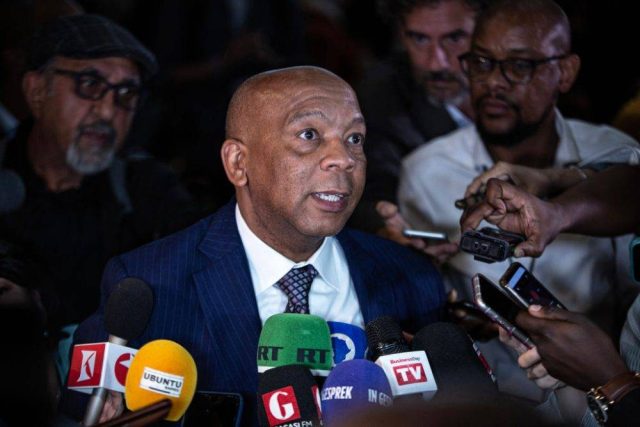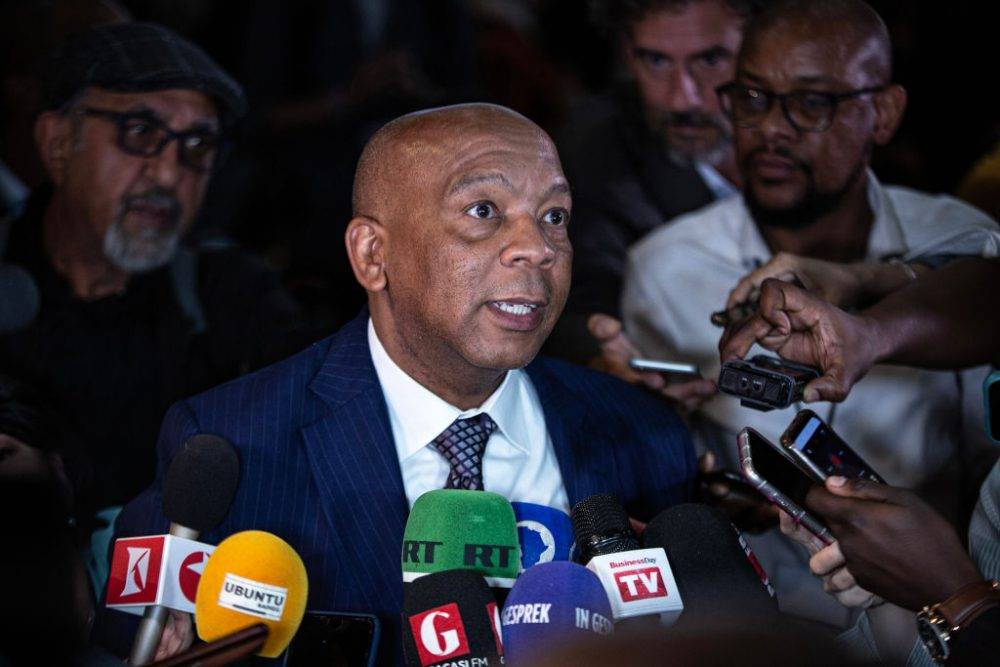

Environmental activists have criticised Electricity Minister Kgosientsho Ramokgopa’s announcement of a 2 500 megawatt nuclear procurement as premature and against the rules needed to approve a determination.
Earthlife Africa director Makoma Lekalakala said such an announcement should come from the National Energy Regulator of South Africa (Nersa) and not the electricity minister.
“The entire process is flawed. Nersa has not made a public announcement on the ministerial determination on the 2 500MW new nuclear electricity generation capacity.
“We also don’t have a fully reviewed IRP2023, which is the Integrated Resource Plan that would inform whether we need this new nuclear generation capacity.”
The comments come after Ramokgopa announced on Tuesday that there was a “compelling” case for expanding the use of nuclear power because of the need for additional generation capacity.
“There has to be an appreciation of the generation and demand challenges, and in that context, you can make a case on why you need to proceed with this 2 500 megawatts,” he said.
The minister also claimed nuclear power “is the cheapest, safest and most reliable” form of energy.
Francesca de Gasparis, executive director of the Southern African Faith Communities’ Environment Institutes, said the announcement has been met with disbelief by civil society because independent modelling shows that nuclear power is neither affordable nor needed in South Africa’s energy mix now or in the future.
“We know the electricity baseload [minimum power needed] does not need nuclear energy and in the absence of a finalised and fully reviewed IRP2023, the announcement by government seems to be motivated by greed, not need,” she said.
“Many will question the timing and process of why energy procurement is being announced before finalising the IRP2023. What is the rush? Since nuclear energy plants take decades to build, would it not be better to ensure that it is the right thing to do for the country before we seek to commit?”
De Gasparis added there was no proof that this new announcement for more nuclear energy is being done at a pace and scale that the country can afford.
Ramokgopa’s announcement comes as the country is fighting to get a licence to extend the Koeberg nuclear power station’s lifespan by 20 years.
Ramokgopa said, at 60 cents per kilowatt-hour, nuclear energy is the cheapest compared with all forms of energy. He said solar photovoltaic costs 50 cents per kWh, wind costs 87 cents per kWh and open-cycle gas turbines (diesel) R5.80 per kWh.
But, environmental groups argue that it is costly to build the power stations, take 10 to 15 years to build, and is not a good solution to the problems facing the country.
The costs of constructing, maintaining and later decommissioning a nuclear plant makes nuclear one of the most expensive forms of electricity generation, Harmut Winkler, professor of physics at University of Johannesburg, this week wrote in the Mail & Guardian and The Conversation.
“The construction cost of a new nuclear plant typically stands at about $5 billion per 1000MW. The cost of a 2,000MW build in Uganda would be of the order of that country’s annual total tax revenue. As such, the project would rely on massive loans, which also come with considerable interest,” Winkler said.
He also pointed to the risk of “complete political and economic dependence on the nuclear build sponsor country”.
But Ramokgopa said it was better “to plan ahead to avoid being stuck in the same situation where the country is suffering because of lack of planning”.
As the government prepares to release its long-term energy plan, the Integrated Resource Plan (IRP) 2023, which has draft approval from cabinet, Ramokgopa said the decision to pursue 2 500MW of nuclear energy had been made in the 2019 version of the IRP and had been carried forward into the latest edition.
However, the 2019 IRP document did not explicitly incorporate new nuclear power into the energy procurement plan until 2030. Instead, it advised the mineral resources and energy department to initiate preparations for a nuclear build programme, targeting 2 500MW, at a pace and scale affordable for the country.
The post Environment groups slam Ramokgopa’s nuclear power announcement appeared first on The Mail & Guardian.
They say say the nuclear determination did not follow correct processes and would prove more costly than other forms of energy
The post Environment groups slam Ramokgopa’s nuclear power announcement appeared first on The Mail & Guardian.


